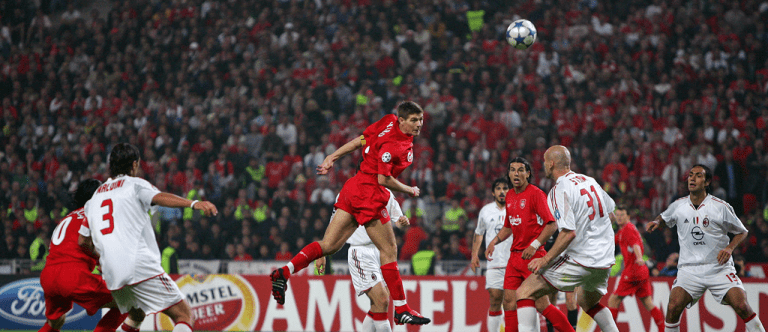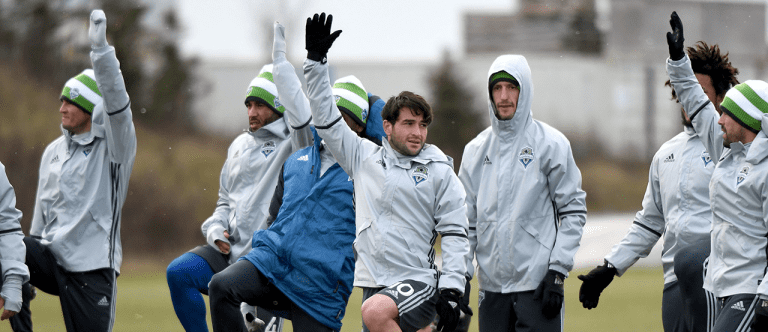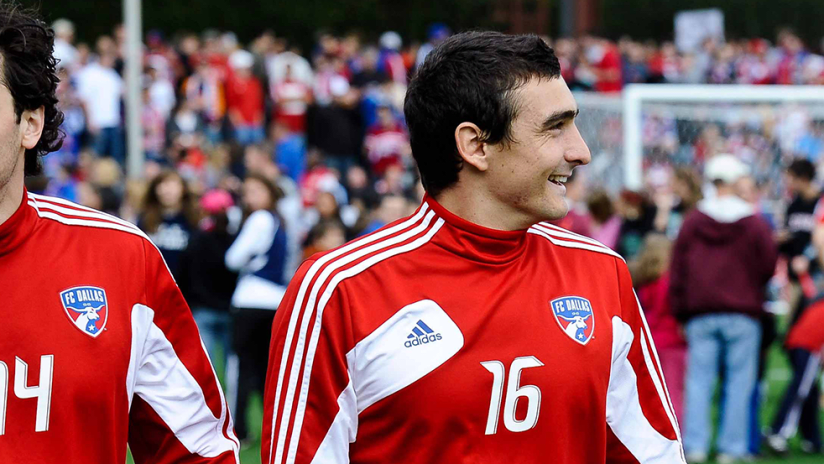On Tuesday, we talked about the uphill battle young players face simply to crack the lineup. Unseating an incumbent starter is often the hardest battle a player faces in his career.
And with that in mind, I wanted to pass along a message to the young players around the league stepping through the wardrobe doors, from a guy who did and now sits in a cubicle: You have an amazing opportunity on your hands. Cover every detail so you won’t spend your life wondering what could have been.
This goes beyond practice or games: We already expect you to push toward the limits on the field. I’m talking about the hours away from the training facility. Your day shouldn’t end when coaches stop telling you what to do – you can’t head straight home and plop down on the couch. There is more to do to get the most out of your body, mind and, ultimately, your career.
For all the obstacles, young players need to take ownership over their careers.
Too many think they’ve signed on the dotted line and already accomplished something. They think the hard work stops at a time when it's only beginning. Surviving as a pro – let alone climbing the pyramid – takes more focus and perseverance than you'd ever imagine. It's not signing up to live an easy life; you signed up to grind harder than ever before.
Never forget that every .001-percent improvement matters. The margins at the top are slim: enough .001 percent gains close the 1 percent separating you from the player ahead of you. It has to be a calculated decision to scratch for every millimeter of improvement.
The body has limits, and you don’t need to stay on the field for five hours a day. But the best advice I ever received is, “If there’s time in the day, there’s something you can be doing.”
Here are a few of those somethings:
Read soccer books

Gerrard's goal vs. AC Milan | REUTERS
In the 54th minute of the 2005 UEFA Champions League final, with Liverpool down 3-0, Steven Gerrard stormed into the box, stopped near the penalty spot, rose to meet a cross, and pounded a header toward the far post. It started one of the most epic comebacks in sports history.
In his autobiography, Gerrard talks about the experience at halftime of that game. He articulates what was going through his mind and how he dug himself out of a demoralized hole.
There will be a point in your career when you walk into the locker room at halftime completely crushed. You’ll have no idea how your team is going to get back into the game. Maybe you’ll think back to Gerrard’s book. It might not change your career, but it could provide a small edge for a vital moment.
There are a lot of good soccer books out there. For professional players, I’d say start with: Carra (autobiography of Jaime Carragher), Pep Confidential (about Pep Guardiola’s first year at Bayern), and Open (autobiography of Andre Agassi, who I realize wasn’t a soccer player, but delves deeper into the emotions and insecurities of a pro athlete than anyone else). Books provide a window into the minds of the masters.
Prehab bodywork

Nicolas Lodeiro leads stretches before the 2016 MLS Cup | USA Today Sports Images
The corniest – but most real – advice I ever heard was: “A player’s most important ability is his availability.” Beyond the dad-joke aspects, it’s painfully true. If you’re not available to be selected to play because of injury, you are nothing. Everything you’ve ever done – or could do – does not matter. You need to make sure you are fit and able to perform to the best of your ability every week.
Injuries often come down to circumstance-in-the-second, but preparation goes a long way toward prevention. Your body might be too tired to train hard after practice, but it’s not too tired for the foam roller. You can strengthen your core, stretch and do the fifty tedious things physios are always asking you to do. When you’re sitting on that flimsy foam after practice, you'd often much rather be home on your couch; but when you’re on the sideline watching your team play without you, you'll wish you had just done the dang roller.
Watch soccer
Playing soccer is largely about “chunking.” The game moves too fast to see everything at once, so you “chunk” pieces of information. You don’t need to sort through the information every time; when you see a certain chunk, you already know what to do, and your subconscious can initiate the problem-solving sequence.
Watching soccer helps build those chunks, from formational adjustments to player tendencies. If a team presses a certain way, maybe it’s effective to play out of the back in a specific manner. Or when, say … Dax McCarty has a marker on his back, he uses his right foot to trap the ball more often than his left foot. (@ Ben Baer for the numbers.)
You could spend dozens and dozens of hours watching meaningless games and get bored out of your mind. But if you steal a ball off McCarty in your 5-minute cameo at the end of a game and it results in an assist, it could change the trajectory of your career.
Meditate
Athletes always talk about the feeling of being “in the zone.” Whenever someone makes an incredible play or puts in a spectacular performance, they always refer to that elevated mental state. But a player shouldn’t hope they hit that zone – they should train their mind to attain it.
There will be games when you mess up a couple times in the first few minutes and get down on yourself, feel like nothing is going right and start to lose confidence. And we all know how badly we play after losing confidence.
Athletes lift weights to strengthen their muscles, and yet too often ignore the brain. One thing players can do to impact focus, transitions and confidence is this: medidate. Finding a meditation practice that clicks can help train the brain in the direction you want it to go. That should be a part of every athlete’s training regime.
In that pivotal moment, you can lean on your meditation training, focus on your breath instead of the last pass. Your heart rate will drop and you’ll refocus on the next play.
Meditation won’t change who you are as a player. But it might improve your play that crucial .001 percent. Don't let the opportunities lie.













